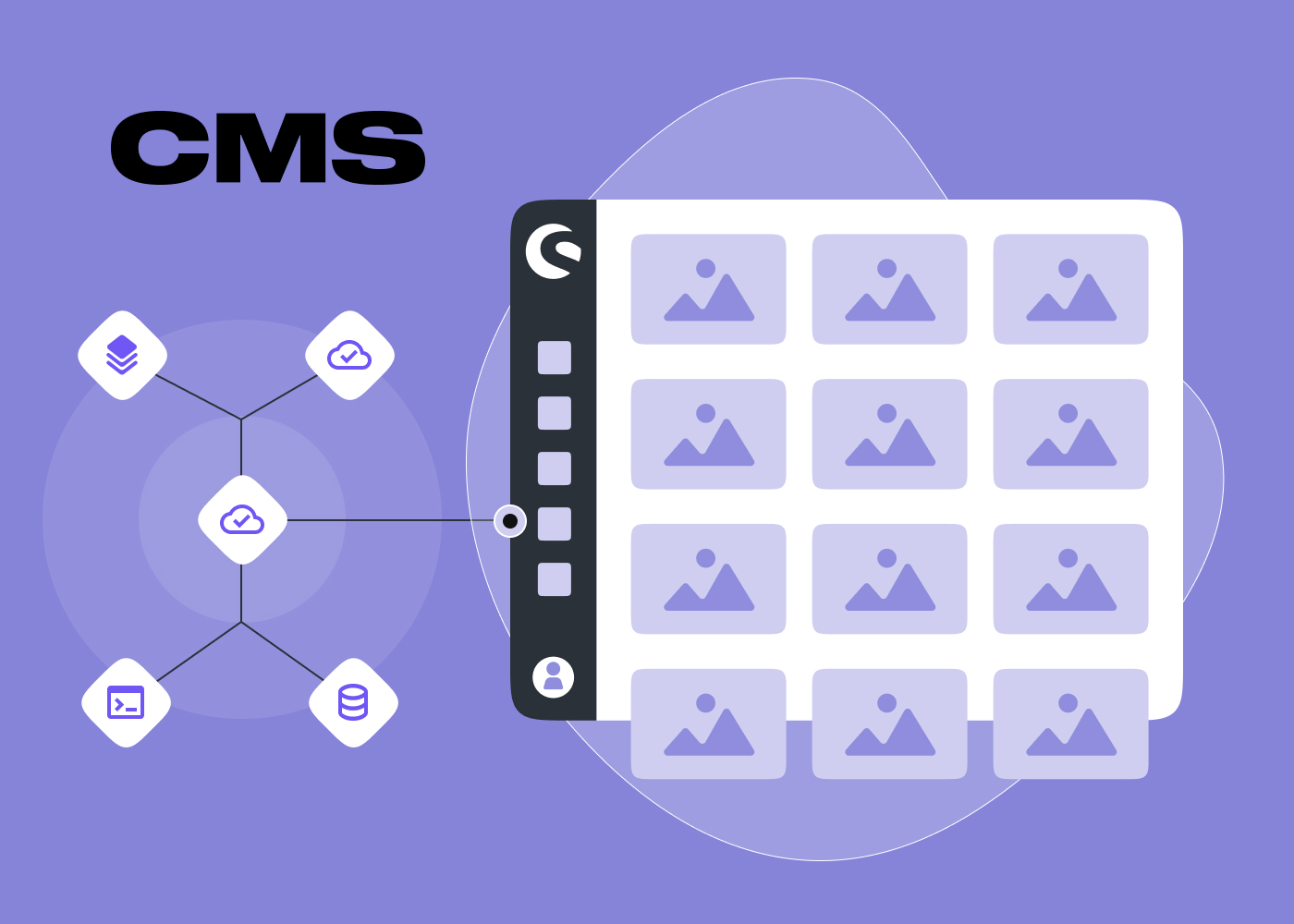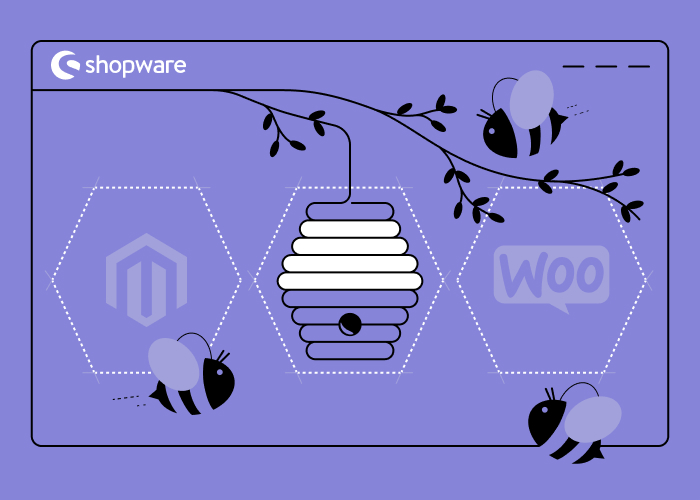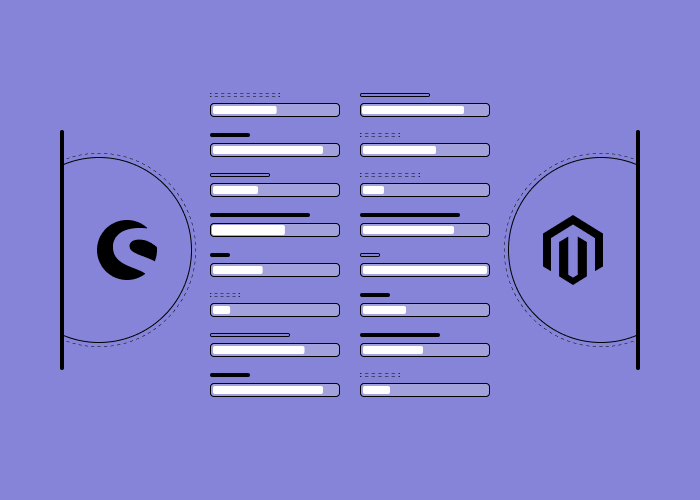Content
Shopware CMS Integration: When and Why You Need it

Shopware is a powerhouse CMS from German software vendors perfect for creating online stores of any type and size. It is the next generation of open-source eCommerce software based on Symfony and Vue.js, as well as on Bootstrap 4 and Twig templates. The renowned CMS offers tons of themes (built with responsive templates) as well as support for dozens of languages and currencies, and sales channels (including headless channels).

Image source: api.stanleystella.com
Let’s dive into the topic of Shopware CMS integration with the existing solution.
Lets talk about itHave a project in mind?
Why Implement CMS Integration?
Let's say you already have a working website. Only, it lacks some major eCommerce features. It doesn't matter if you built a website based on a custom framework or chose a readymade platform, adding new features to a running solution is not an easy task, and usually requires rewriting most of the program code.
Integration with the CMS, in turn, will require minimal effort from you to supplement the existing functionality: you just need to take your existing website and connect your chosen content management system to it. Thus, you will no longer need to use monolithic platforms like WordPress, which in some cases are very difficult to modernize and sometimes require a complete rewrite of the entire site from scratch.
CMS integration as a way to achieve practically unlimited scalability
What if the CMS powering your site right now no longer meets your requirements and business needs? And the truth is: monolithic solutions are difficult to scale - you will not only have to add new modules but also update many dependencies.
On top of that, if you want to connect some non-standard technological solutions to the site, you will still need an admin panel that is accessible to an ordinary Internet user. That is, to ensure the ability to maintain its vital activity, through which the content manager can add products and change store settings without third-party help. This is where the CMS integration comes in handy.
Which CMS to integrate best?
The answer is short - headless (decoupled) CMS. Such frameworks provide access to content through APIs without using their own methods. In this case, the “head” of a website defines everything related to HTML rendering, that is, located on the client side. Therefore, the part of the site that directly contacts users will be based not on the new CMS, but on something else.
Thus, the “headless” site format, which can be merged with any of the JS frameworks, allows developers to create ultra-fast interfaces with a lot of animation and interactive elements.
As for traditional monolithic CMSs, they also provide access to data, however, they do this not through APIs for third-party solutions, but only within modules from the same vendor and using methods specific to these CMSs. This creates additional complexity, even for experienced developers.
That’s why in some cases it makes sense to go for a decoupled approach, to avoid additional manipulations with program code and make operations with the content fully independent from CMS syntax. Furthermore, it gives you an opportunity to work with dynamic content without productivity decreasing and performance loss.
Usually, the frontend and backend can be managed from the same platform, but now, in the case of the decoupled approach, the frontend will be formed through the API. This gives frontend developers more freedom to create a custom store UI and simplifies the process of connecting new sales channels.
One of the best CMSs that can be used as the decoupled platform is the 6th version of Shopware.
Why Do We Use Shopware for Integrations?
At Dinarys, we have specialists with tremendous experience in developing eCommerce websites based on Shopware and are ready to share our thoughts on the advantages of this engine:
- the low total cost of ownership (TCO). Shopware is among the most reasonable priced eCommerce platforms, which means that the cost of the license and implementation will be affordable even for a small business;
- fast launch of custom solutions. Considering that the standard delivery of this CMS includes all the necessary tools for immediate development, it will not take much time to put a readymade commercial website into operation;
- customer experience personalization. Shopware aims to personalize the shopping experience. In particular, even the free version is endowed with a graphical interface that allows you to model custom interfaces for stores without the help of professional developers;
- built-in solutions. Shopware itself is primarily responsible for managing online stores. As for the rest of the functions, such as personalization, marketing, order fulfillment, etc., they are performed by plugins. All in all, make sure you have the following:
- intuitive admin interface;
- drag-and-drop functionality;
- ad campaign creation;
- third-party API compatibility;
- extensive SEO capacities;
- attractive, convenient media manager for a digital media organization.
Read more: Shopware vs Other Ecommerce Platforms
You can pick one of the following Shopware packages for integration:
- Community Edition. This is a free and open-source version that includes a basic set of features for building eCommerce solutions;
- Professional Edition. This package features advanced CMS capabilities such as customized products, auto-updates, and technical support from Shopware experts. This version of Shopware is priced at €199 per month, or you can purchase it for €2,495, no monthly payment required;
- Enterprise Edition. This version boasts extra functions for the implementation of B2B platforms. The cost of this package is calculated individually for each particular case.
The Ultimate Customization Opportunities of Shopware
Our in-house specialists really enjoy and highlight Shopware as an in-depth flexible platform that can be customized to almost any extent. Due to the fact that the platform is based on Symfony, Shopware-based systems’ properties (such as product/property/category/etc.) can be efficiently extended and edited. For this, there is a huge number of available plugins. And the best part is that we create custom plugins based on the individual client and project requirements.
As for the functional part, the underlying mechanisms can be customized via event subscribing provided by Shopware. A developer can then use these events to add up custom functionality. Thus, you are free to change product selection rules (e.g., enable certain extra features upon addition of products to the shopping cart) and do more individualizing edits.
A custom approach allows achieving fully authentic creations with the capacities that just hit the spot, no excessive parts included. By getting a system tailored closely to your particular workflow needs, goals, and specifics, you get to save time, costs, and boost the overall user experience when it comes to working via your Shopware-powered system. At Dinarys, we consider Shopware system customization savviness among our trademark values.
All in all, to get more capabilities, you can use cool efficiency-boosting plugins, of which we would recommend to get right away the following:
- Blog for SW 6 - a plugin we have been successfully employing in one of our own projects which provides great eCommerce blog management opportunities;
- Shopware CMS Professional - the ultimate addition to your standard software package that greatly extends the basic Shopware functionality.
What good is Shopware a decoupled platform?
Since the sixth version of Shopware is headless and API-focused, it allows you to implement one of the most trending concepts in web development - progressive web apps (PWA, which look like regular websites, yet are endowed with some application functions) - for instance, using Vue Storefront.
Such applications are very well ranked by Google search algorithms, which allows reaching the top search positions without much effort on the part of SEO specialists.

Image source: blog.vuestorefront.io
On top of that, this CMS format (with the ability to provide a headless structure) allows you to effectively interact with third-party source solutions, without requiring any software shells to establish communication between them. Shopware 6 also features a high-performance kernel that optimizes dynamically updated content.
Due to this, you can create high-load sites with a large amount of media data - for example, with live streams and large file databases, and at the same time not worry about content loading delays.
Moreover, with Shopware 6, you get:
- a perfect omnichannel solution to ensure maximum customer focus;
- the ability to implement any major technological trends;
- flexible configurations of all system aspects.
Shopware CMS Integration: Bottom Line
As you can see, Shopware can be considered not just one of the CMS solutions that allow the creation of decoupled solutions but also a platform that is ideal for developing PWAs. If you are interested in modernizing or scaling an existing website, this is probably where you need CMS integration.
We can help you clarify all the underlying details and update your site based on our experience of working with Shopware CMS for many years. Contact us right now to learn more about the growth prospects of your online business.
Take a look at our portfolio to see approximately what you can get working with our team of seasoned specialists.
Let professionals meet your challenge
Our certified specialists will find the most optimal solution for your business.



